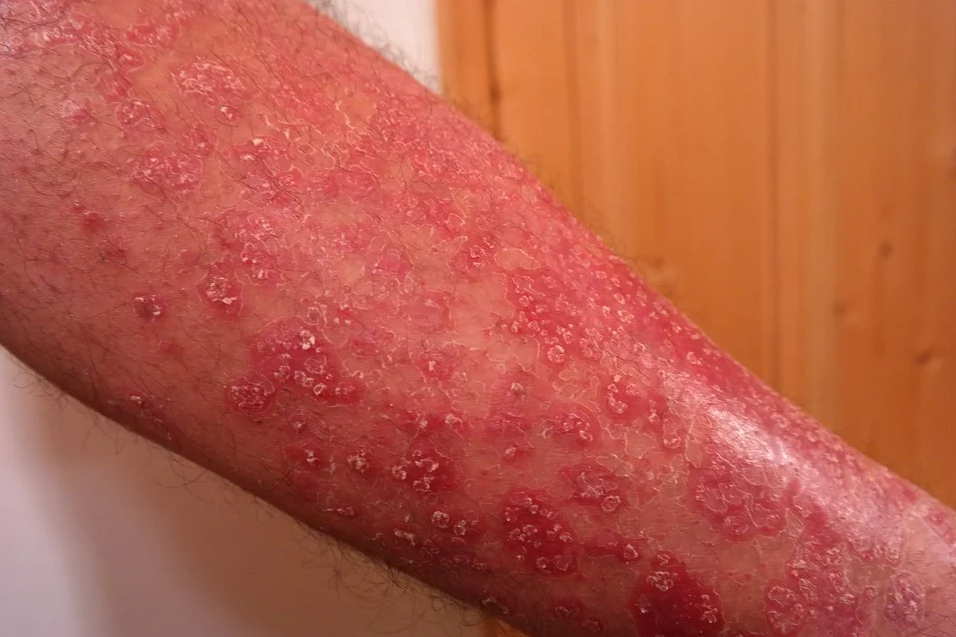For healthy skin when you’ve got Psoriasis, its really important to get yourself a daily skin routine. Here are the recommendations:
1. Cleanse and Mosturise your skin just once a day to avoid drying, its a good idea to make this your morning duty.
2. Use a soft cloth or just your hands to lather up the cleanser, never use anything with an abrasive surface as it can aggravate the area and could actually make it worse.
3. Oils can help with Psoriasis and keeping the area moist but may stain clothes, don’t cover the area once the oil has been applied.
4. Diets are an extremely important area of treating Psoriasis. Omega-3 can help with reducing inflammation.
5. Use shampoos such as T-Gel to help reduce itchiness of the Psoriasis.
There are different types of Psoriasis including Plaque Psoriasis, Scalp Psoriasis, Guttate Psoriasis, Pustular Psoriasis, Nail Psoriasis and Psoriasis in Sensative areas.
The most common sort of Psoriasis is Plaque Psoriasis, it gets its name due to the Psoriasis that are formed by the build up of sking cells.
Treatment for Psoriasis usually helps to keep the effected areas under control. Depending on the area and the type of Psoriasis will depend on the treatment, but they fall into the following categories:
1. Systemic – Injected and oral medications that work all over the body and keep affected areas under control.
2. Topical – Creams and ointments that you will need to apply to the skin.
3. Phototherapy – Exposing your skin to certain types of ultraviolet light.
Usually, it will be recommended to combine a couple of the above treatments to help control Psoriasis.
Research has suggested that Adults with Psoriasis that cover at least 10% of their body double the chances of an early death than those without.
Whilst it isn’t completely clear ehat causes Psoriasis, many researchers believe it is down to either the Immune System or Genetics.
Immune System:
Psoriasis is an autoimmune condition where the body mistakenly attacks itself. White blood cells known as T cells attack the skin cells.
Genetics:
Some people can inherit the genes that make them more likely to develop Psoriasis, especially if it is a member from the immediate family.




